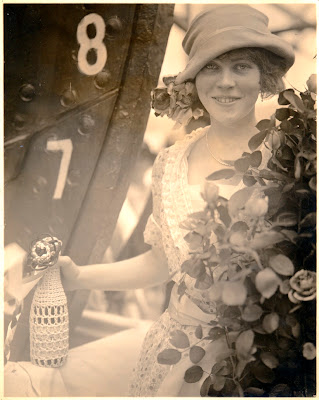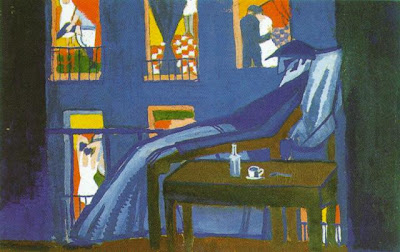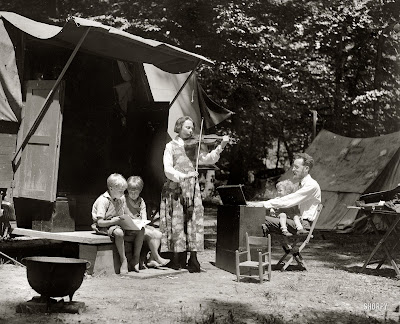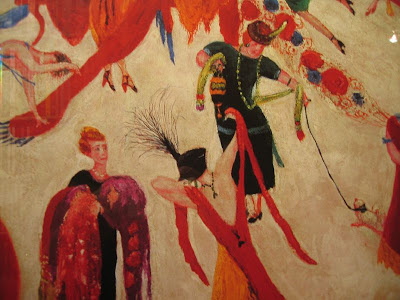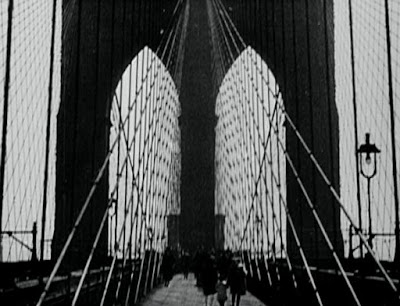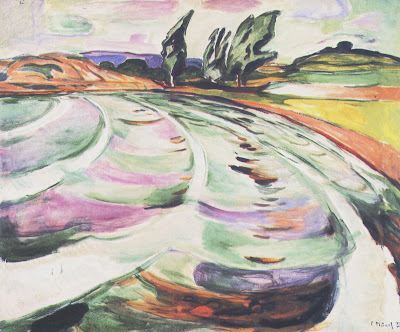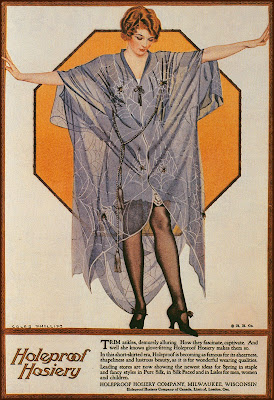Songmasonry: There'll Be Some Changes Made
Ethel Waters (1921).
Marion Harris (1924).
Josie Miles (1924).
Edith Wilson and "Doc" Straine (1925).
Chicago Rhythm Kings (1928).
Eddie Lang (1928).
The Boswell Sisters (1932).
Fats Waller (1935).
Roy Newman and His Boys (1935).
W. Lee O'Daniel and His Hillbilly Boys (1937).
Ocie Stockard and the Wanderers (1937).
Pee Wee Russell (1938).
Bunny Berigan (1939).
Mildred Bailey (1939).
Eddie Condon (1939).
Una Mae Carlisle (1941).
Art Tatum and Chocolate Williams (1941).
Lucky Millinder (1944).
Peggy Lee (1947).
Bob Wills and His Texas Playboys (1949).
Oscar Peterson Trio (1953).
Kid Ory's Creole Jazz Band (1955).
Billie Holiday (1959).
The Collins Kids (1959).
Helen Humes (1961).
Ann-Margret (1962).
Butterbeans and Susie (1962).
Dave McKenna Quartet, with Zoot Sims (1974).
Chet Atkins and Mark Knopfler (1990).
"There'll Be Some Changes Made" is barely a standard. It's not cut from the same timber as
"After You've Gone" or
"Body and Soul": it's a trifle, a period piece, a Saturday lark, an album track, a throwaway.
Alec Wilder:
It's only eighteen measures long; it attempts nothing special; indeed, its attractiveness lies in its seeming not to have tried, to have simply happened at a time and place when everything was conducive to noodling around until a happy idea unfolded and before the noodler knew it, he had a song. It has none of that Tin Pan Alley, "let's write a hit today" quality about it...It's so relaxed and honest that, as far as I'm concerned, it could do, and did, anything it had a mind to.Yet there is something compelling about this little trickster of a song. A seeming lightweight, it's actually an intricate composition whose harmonic structure subtly comments on its lyric. You get taken in by its bravado and brassy style, although the song's interpreters often suggest it's a false front.
"There'll Be Some Changes Made" is a transfer ticket redeemable nearly anywhere in the 20th Century. Written by two African-American vaudevillians, its debut recording issued by the first black-owned record label, "Changes Made" became a favorite of blues singers and underwent the typical mutations at the hands of jazz players. By the mid-'30s, it was a hot Western swing number, played by everyone from Bob Wills to Milton Brown to the Ozark Ramblers, and it kept in motion after the war, played by Chet Atkins and Tennessee Ernie Ford even as the song became part of the Dixieland jazz revival scene. Billie Holiday and the rockabilly Collins Kids cut the track around the same time; one of its last good recordings was a bit of glorious fluff by Ann-Margret.
"Changes Made" at last fell out of fashion sometime in the '60s, and it has been brought out on only a few occasions since (the Atkins/Mark Knopfler 1990 version, refitted with new, self-mocking lyrics about getting old, is a fine epitaph). Still, why had it lasted so long? What did it keep telling us?
The Showmen
Billy Higgins and W. Benton Overstreet were African-American theater pros of the first decades of the past century. Neither crossed over to white audiences except through this song, their surviving ambassador.
Higgins, born William Weldon Higgins in 1888 in Columbia, South Carolina, was a singer and a blackface comedian. He started out working as a machinist while singing at private concerts, and was a WWI veteran. By the late '10s, he was the top performer in a string of vaudeville shows, traveling troupes and burlesque revues that toured the circuit of black theaters, North and South, and while Higgins didn't have the success of his contemporary Bert Williams, he starred in two hit '20s shows--the 1924 revue
Cotton Land (where he shared the stage with James P. Johnson) and the 1929-30
Hot Chocolates. He died around 1940.
If Higgins was the talent, William Benton Overstreet was the organization. A pianist, composer and bandleader who Langston Hughes ranked along with W.C. Handy as one of the "better poets of jazz," Overstreet's near-total obscurity today is the reverse of how prominent he was during the WWI era.
By the mid-1910s, Overstreet was directing the Lyric Theater Orchestra of Kansas City while also running a group backing the "Rag Shouter" Estelle Harris at the Grand Theatre in Chicago (Overstreet allegedly was using the term "jass" to describe his music by this point). He also collaborated with James "Slap Rags" White to compose music for a vaudeville show called "Moonlight on the Levee," which featured such players as Princess Wee Wee (a midget performer who danced to "Walking the Dog").
While Wilder calls Overstreet a "one-shot writer," Overstreet was quite prolific for a time. The Library of Congress lists a number of
Overstreet copyrights in the 1915-1920 span, ranging from "The Jazz Dance" and "That Jazz Melody" (with Carrie Grainger) to wartime chaff like "To the Front for the Good Old U.S.A" and "When the Boys of Uncle Sam Come Home From the War." He was still cutting records (mainly as a piano accompanist) as late as the '30s. Overstreet remains a mysterious figure: when was he born? where was he from? when did he die? No one seems to know. He's crying out for a good biographer.
It's unclear how his songwriting partnership with Higgins began, but one guess is that since Overstreet routinely collaborated with performers he backed (as he did with Estelle Harris), he may have started out writing music for some of Higgins' stage routines. There's no recording of the two of them performing "Changes Made," though it appears the song was already a stage hit by the time Ethel Waters recorded it in the summer of 1921. (Higgins and Overstreet wrote few memorable songs besides "Changes"--the only other notable ones are
"Georgia Blues," which Waters also recorded, and "Early Every Mornin' I Want My Lovin'", cut by Josephine Beatty (with Louis Armstrong in the backing band) in 1924.)
The Circle Game
The verse of "There'll Be Some Changes Made" (usually discarded after the first few recorded versions, though Una Mae Carlisle revived it in the '40s) is dreary stuff, and it serves mainly as contrast to the ebullient chorus: 16 bars with a two-bar extension, repeated once, and built around the core harmonic concept of the
"circle of fifths".
Being barely musically literate and quite inept at explaining any music theory concepts, I will ask you to peruse that link (and the following one) to learn more about such things, should you feel the need. But basically,
circle progression means that a composer regulates the chord changes of a song in a predictable, "clockwise" pattern. And almost all of the chords in "Changes Made" are dominant sevenths, so that "each therefore pull[s] to the next" (Richard Middleton). Consider the harmonic result the equivalent of a spinning second hand on a clock dial--the song moves at a steady, smooth, foreseeable fashion, so that the chorus could be repeated indefinitely.
So if the key of the chorus of "Changes Made" is in F, it goes: D7 (4 bars)/G7(4)/A7(2)/D7(2)/G7(2)/C7(2)/D7(4)(the start of the chorus repeat, with the lines "gonna change my way of livin'")/G7(4)/A7(2)/D7(2)/G7(1)/C7(1)/F(1)--the tonic key at last, on the words "made to-day"/G7(1). Then the two-bar extension, the last iteration of "there'll be some chan-ges maaaaaade" which goes: G7/C7/F/F.
At the same time, the vocal melody strains against the cold precision of the song structure--it's the spanner in the works. Middleton:
The melody focuses around the most yearning dissonant notes--A (the ninth over the G chord) and D (the ninth over the C chord), creating plentiful opportunities to singers to smear the pitch. These notes "happen" in the seventh and third of the key--that is, those notes most commonly smeared in blues: pools of potential bitter-sweetness tempering the bright-eyed bounce of the rhythm and the ever-onward cycling of the harmonies.Viewed against this backdrop, the jaunty lyric gains more depth. The cycling of the harmonies underneath the singer parallels the natural cycles that she depicts--the changes in the weather and the tides, or the unalterable cycle of age ("nobody wants you when you're old and grey"). At the same time, the high "bittersweet" notes she sings suggest the pain and futility of her claim that she's going to break the cycle at last.
The lyric's bold (delusive) statements are purely American: one day you're going to wake up, move uptown and dress, walk and talk differently--and then the world will treat you differently. You'll make your own luck. You can be someone else. And once in a while, it works--Robert Zimmerman, Minnesotan Jew, becomes Bob Dylan, Okie folkster. It happens all the time in fiction: Dick Whitman becomes Don Draper, Jay Gatz becomes Jay Gatsby. But most of the time the lie fails, because even the liar doesn't believe in it enough.
Gonna Change the Way I Sing The Blues
Once "There'll Be Some Changes Made" got out into the world, however, it became an emblem, a banner to be waved, as the world into which it embarked began changing radically and rapidly.
It's a cliche to say that the 1920s are the first draft of the 1960s, but there's a lot of parallels--money to be made all over the place; a horde of bored, restless young people; idealism and cynicism abounding in equal measures; a taste for the illegal; lots of good music; lots of sex and drugs; the emergence of a mass media (radio/popular magazines in the '20s, TV in the '60s); the sense of living in the public, that life was being performed on stage. So something like "There'll Be Some Changes Made" became revolutionary by default, sung by flappers, played by jazz bands at speakeasies.
That said, its debut recording truly was revolutionary.
Black Swan Records was the first black-owned record label (W.E.B. DuBois was on the board of directors), and its first star (and cash cow) was the young Ethel Waters. Her initial sides like "Oh Daddy" sold so well that they got the label out of debt and earning more than $200,000 a year (inflation-adjusted).
Waters' debut recording of "Changes Made," backed by a Fletcher Henderson-led group, is sung, as all Waters tracks are, with impeccable diction, though there's still something unsettling to it: take the way Waters will sometimes jump before the beat. But the record's mere
existence--a black-written song performed by a brilliant black female singer (who doesn't have a trace of minstrelsy in her performance) on a black-owned record label--would have been inconceivable even five years before. Black Swan could have had added a subscript to the label: "'There'll Be Some Changes Made'
and here's one of them."
And yet, as the years went on, the song could seem reactionary at times. The jazz modernists had no interest in it, while the Dixieland players often returned to the song, taking refuge in its solid harmonies and having a ball with its increasingly creaky sentiments. A sense of desperation set in. Billie Holiday's take is from her last-ever recording session, four months before she died in 1959, and the track's slow tempo and Holiday's unaltering register (though she's trying, sadly, to sound spry) suggests that the song, in its very bones, is a lie. Nothing is changing, nothing will ever change. (Middleton also hears in Glenn Miller's soporific big-band version the wish "that nothing must be
allowed to change" in the midst of a world war.)
It's apt that "Changes Made" faded at last in the mid-'60s, when the bohemian promise of the '20s erupted into the now-familiar revolts. Or perhaps it's simply that the song, true to its lyric, just got old and grey and nobody wanted it any more. For all we know, its time may come around again.
A slight discographyEthel Waters (ca. August 1921; Black Swan 2021);
An Introduction.
Marion Harris (ca. June 1924; Brunswick 2651-B); on
Archive of American Popular Music.
Josie Miles, backed by the Choo Choo Jazzers (ca. December 1924; Ajax 17087); on
Josie Miles Vol. 2.
Edith Wilson (6 March 1925; Columbia 14066) was one of Mamie Smith's biggest rivals, and she trades barbs here with "Doc" Straine--this track is a throwback to turn-of-the-century black vaudeville and seems to be conjuring Ike and Tina Turner into being as well; on
Edith and Lena Wilson Vol. 2.

The Chicago Rhythm Kings (6 April 1928; Brunswick 4001) were one of the many jazz supergroups kicking around at the time, with Mezz Mezzrow on tenor sax, Gene Krupa on drums, Eddie Condon on banjo and vox, and Frank Teschemacher on clarinet; on
Jazz From the Windy City.
Eddie Lang (17 November 1928; OKeh 8633). Issued under the name "Blind Willie Dunn" in a bald attempt to fool black record buyers. The pianist is either Frank Signorelli or Justin Ring; on
1927-1932.
The Boswell Sisters (21 March 1932; Brunswick 6291), with the Dorsey Brothers Orchestra. One of the best versions of "Changes Made" ever cut, and my favorite. The sisters start the song in close harmony at a brisk tempo, and then essentially throw Overstreet's melody out the window--going into three 12-bar choruses of slow blues (sung gorgeously by Connee Boswell), followed by one last breakneck-paced group vocal chorus. Just masterful. On
Boswell Sisters.
Fats Waller and His Rhythm (24 June 1935; Bluebird 10322): Rudy Powell's clarinet here is the link between straight jazz and Western swing--it sounds like a fiddle; on
If You Got to Ask You Ain't Got It.

Roy Newman and His Boys (1 October 1935; Vocalion 03325). Transferred and uploaded by some generous soul on this wonderful
Western Swing website.
W. Lee O'Daniel and His Hillbilly Boys (10 June 1937; Vocalion 03902); on
Doughboys, Playboys and Cowboys.
Ocie Stockard and the Wanderers (11 Sept 1937; Bluebird 7570)--Stockard was Milton Brown's banjo player, leading his own outfit here; on
Western Cowboy Classics.
Bob Wills and his Texas Playboys (ca. 1949; Presto radio transcription). It's a shame Wills didn't cut it a decade earlier, but this is still pretty hot. (Bonus: here's
video of Wills' electric guitarist Eldon Shamblin doing "Changes Made" in 1986.)
There also are Western swing versions by Ambrose Haley and His Ozark Ramblers (1937), the Nite Owls (1939), the Hoosier Hot Shots (1941) and Milton Brown and His Brownies (1936) which I haven't heard, and would love to.

Pee Wee Russell's Rhythmakers, with James P. Johnson on piano (31 August 1938; Hot Record Society 1001); on
this collection of Russell and Jack Teagarden's Hot Record Society sides.
Bunny Berigan and His Orchestra (15 March 1939; Victor 26244)--jazz as smooth as a silk shirt; on
Bunny Berigan and His Orchestra.
Mildred Bailey and Her Oxford Greys (16 March 1939; Vocalion 5268); on
1939.
Eddie Condon's Chicagoans (11 August 1939; Decca 18041). Condon, already cementing into a jazz traditionalist, revisited the tune a decade after the Chicago Rhythm Kings, and Pee Wee Russell took another crack too, as he's on clarinet here; on
Blue Jazz.Una Mae Carlisle (10 March 1941; Bluebird 11096), with Lester Young and Shad Collins; on
1938-1941.
Art Tatum and the bassist Chocolate Williams, with the unknown but sweet Ollie Porter singing (ca. July 1941; from a Jerry Newman acetate); on
God Is In The House.
Lucky Millinder and His Orchestra (ca. 1944; radio broadcast); on
The Uncollected.
Peggy Lee, with Frank DeVol's Orchestra (14 August 1947; Capitol 15001); on
Miss Peggy Lee.
Oscar Peterson Trio, with Barney Kessel (g) and Ray Brown (d) (6 December 1953; unreleased); on the
Complete Clef/Mercury Recordings.
Kid Ory's Creole Jazz Band (22-25 November 1955; Good Time Jazz LP 12016
The Legendary Kid).

Billie Holiday (11 March 1959; MGM LP E3764
Last Recording), with Ray Ellis and his Orchestra, including Al Cohn (ts) and Sweets Edison (tp), who duet as the track fades. It was an eerily valedictory last session, as Holiday recorded four standards, including "'Deed I Do", she never had cut before; on
Complete Billie Holiday on Verve.
The Collins Kids (16 November 1959; unreleased until the '80s), with regular Nashville pros Hank Garland, Grady Martin and Floyd Cramer; on
Hop, Skip and Jump.
Helen Humes (27-29 July 1961; Contemporary LP 3598
Swingin' With Humes), with Joe Gordon (tp), Teddy Edwards (ts) Wynton Kelly (p), Al Viola (g), Leroy Vinnegar (b) and Frank Butler (d). The line about "even Jack Benny is changing his jokes" had been used for a while, as early as Benny Goodman's '40s version.
Butterbeans and Susie (1962; Festival 7000 LP
Butterbeans and Susie). They were a husband-and-wife comedy, song and dance act who cut their first record in 1922--this self-titled album was their last. Butterbeans (whose real name was Jodie Edwards) died of a heart attack a few years later while on stage.
Ann-Margret (1962; RCA LP 2551
The Vivacious One); collected on
Let Me Entertain You.
Dave McKenna Quartet with Zoot Sims (October-November 1974; Chiaroscuro LP 136
Dave McKenna Quartet with Zoot Sims); on
Featuring Zoot Sims.
Chet Atkins and Mark Knopfler (1990;
Neck and Neck).

Sources: Richard Middleton's analysis of "There'll Be Some Changes Made" in his
Voicing the Popular was invaluable for this article; the chord structure of "Changes" is in
Jazzology, edited by Robert Rawlins,
et al; Lynn Abbott and Doug Seroff's
Ragged But Right shed light on Benton Overstreet; Henry T. Sampson's
Blacks in Blackface is the reference for Higgins' birth date, real name and location.





















